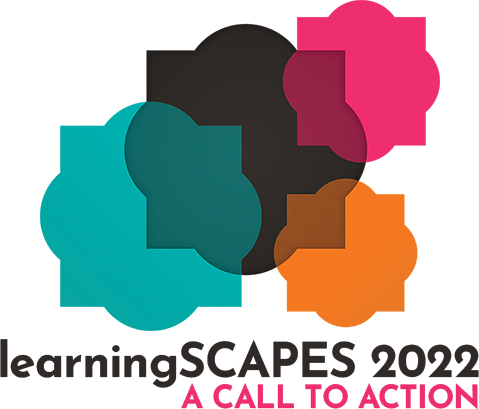 | 1.5 LU / HSW |
 | 1.5 LU / HSW |
How do we explore the many ways contemporary school design marginalizes users based on race, ethnicity, socioeconomic status, trauma, and mental health? This session will introduce the newly released 2nd Edition Deck of Spaces ™ and a hands-on activity to facilitate expanded considerations of space design for equity and inclusion in K-12 schools. This deck of 67 idea cards was codesigned by a national collaboration of experts in learning science and school design. Each idea is firmly rooted in the research-based framework of Universal Design for Learning (UDL) and serves as an entry point to discuss sometimes challenging topics affecting students of all variabilities. The hands-on activity is a game-based exercise (“Schools Against Inhumanity”) that facilitates creative problem-solving through an engaging gamified format. The cards and process provide every person with the language to express their personal perspective with expertise, while seeing others’ perspectives they may not have otherwise considered. Come join us to experience the power of this new tool kit, have some fun while working on critically important challenges in K-12 education, and engage in meaningful discussion with fellow activity challengers. You’ll take away new insights and application ideas to make school a welcoming and academically successful experience for all users!
Learning Objectives:

David is a co-founder of STEAM-Studio and Education Practice Leader for Multistudio. His team has a deep focus on the science of learning, driven by collaborative research with educators, anthropologists, psychologists, and others. For each of the last five years, his education design work has been recognized nationally for innovation. In 2017, David co-authored the book: Unleashing Creative Genius: STEAM Studio’s Impact on Learning. In 2018 he co-authored the first of several editions of the UDL Deck of Spaces.

Susan is the Universal Design for Learning (UDL) Coordinator at Macomb Intermediate School District in Michigan. She designs and conducts professional development opportunities for general and special educators, across grade levels and content areas and speaks on the topic of UDL at local, statewide, and national conferences. Her primary area of interest is the integration of good technology into curriculum to support the learning needs of all students. Susan has served on many state and national boards related to technology and special education, including ISTE’s Inclusive Learning Network, MACUL, and the UDL Implementation Research Network (IRN). In 2018, Susan co-authored the first of several editions of the UDL Deck of Spaces.

Michael combines award-winning classroom practice in both the K-12 and higher education settings with an internationally published record of research and scholarship in education. He leads the development of professional learning around inclusive educational design, with a focus on Universal Design for Learning and issues of gender equity. His research centers global, interdisciplinary collaboration and user partnership and he is the recipient of the 2020 USEA Outstanding Master Teacher Award. Michael is a co-author of the K12 Second Edition Deck of Spaces.
What evidence is there that design matters? That a particular method of delivery is advantageous? That one product is better than another? What lessons have you learned?
Primary Core Competency
Educational Visioning: Exhibits an understanding of best and next practices related to educationalleadership, programming, teaching, learning, planning and facility design. Establishes credibility with educators, community members and design professionals while conceiving and leading a community-based visioning process. Demonstrates the ability to articulate the impact of learning environments on teaching and learning and uses that ability to facilitate a dialogue that uncovers the unique needs and long-range goals of an educational institution and its stakeholders – translating that into an actionable written/graphic program of requirements for the design practitioner.
Learning Units/Health, Safety, Welfare (LU/HSW)
This topic directly addresses HSW in both “Health” and “Welfare”. This session will facilitate a closer examination of diversity, equity and inclusion which directly targets the issue of equitable access in the HSW guidelines. Too often DEI is treated as a series of checkboxes, which overlooks the interrelated nature of each person’s lived experience. Using the UDL framework that rejects normative thinking, we will deconstruct DEI considerations of equity as it pertains to race, gender, and dis/ability, neurotypicality, and more to understand the implications of more inclusive design for student physical health, mental health, and their social and emotional development. Our learning objectives will address how to use UDL in the pursuit of DEI goals throughout multiple stages of an education design project, including during initial evaluation of constraints and opportunities, preliminary design, and in post-occupancy evaluations. Protecting and promoting the health and welfare of users must include explicit consideration of how learning environment design can meet the needs of historically marginalized users, thus increasing the well-being of users and increasing equitable access to the space, and the learning which occurs in it.